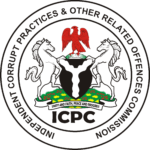By Stellamaries Amuwa
A coalision of Civil Society Organisations (CSO’s) has lamented over the state of the fight against corruption and malicious attacks on anti-corruption agencies in Nigeria.
This was made known during a press briefing on the fight against corruption and malicious attacks on anti-corruption agencies organised by 50 Civil Society Groups representatives in Abuja.
According to one of the group CISLAC, led by the Executive Director, Auwal Ibrahim Musa (Rafsanjani) the nation faces numerous challenges that may lead to feelings of despair and a temptation to abandon our patriotic responsibilities in nation-building, discussions like the one we are engaging in today serve as a reminder that we must move from a state of distress to one of action.
Rafsanjani said, “Across the country, millions of Nigerian citizens have invested their hopes in our democracy.
“There is a groundswell of expectations that as our fledgling democratic system of government takes shape; it will address the deprivations faced by long-suffering citizens.
“However, in spite of the lack of significant and sustainable progress in our nascent democracy over the past twenty-four years, the people at the grassroots level in Nigeria still maintain their faith in and desire for a democratic system.
“Despite its flaws, democracy remains the most effective means for citizens to actively participate in governance and for us as a nation to achieve our collective goals.
“It is important to remember that millions of Nigerians bravely fought for democracy making significant sacrifices in the process.
“It’s widely accepted that transparency and accountability are crucial elements that enable democracies to flourish.
“In Nigeria however, our so-called “democracy” has persistently functioned under a veil of secrecy and lawlessness.
“The management of the country’s resources has consistently disregarded the fundamental principles of democracy.
“Over the past few weeks, we have observed with great concern, the malicious attacks and deliberate efforts to blackmail anti-corruption agencies through sponsorship influencers, incentivised opinion publications in some national dailies, online and electronic platforms, all targeted at discouraging anti-corruption efforts and shielding the kleptocrats from thorough investigation.
“The pattern is clear, there is an unfolding plot of surreptitious moves to backpedal on the progress made by anti-corruption progress that we outline below.
“Judicial corruption constitutes a major challenge to anti-corruption work in Nigeria. The looters have repeatedly used their influence to manipulate the judicial process and system, to block and/or delay the arrest or prosecution of suspects.
“This blatant disregard for the rule of law has eroded public trust and reinforced the perception that Nigeria’s democracy is nothing more than a facade.
“Clearly, the judiciary is not living up to its responsibility of ensuring that the rule of law and provisions of the constitution are upheld.There have been several allegations of judicial officers receiving bribes from politicians and politically exposed persons in-order to circumvent the law.
” This has watered down the respect, trust and confidence of citizens in the judiciary and negatively impacted the fight against corruption.
“Nigerians have witnessed too many situations where courts have granted injunctions which deterred anti-corruption agencies from inviting and prosecuting corrupt government officials and politically exposed persons.
“Nigerians have witnessed with alarm numerous cases featuring a high number of foreign enablers from Switzerland, Monaco, Panama, British Virgin Islands and the United Kingdom (UK) facilitating corruption. Enablers from the UK are particularly strongly linked to Nigerian cases.
“Of course, Nigeria also has a number of domestic enablers involved in cases. Out of 87 enablers captured, 5 enablers are from Nigeria: 3 lawyers/law firms and 2 real estate agents. This is due to cases involving, for example, Nigerian lawyers managing trusts on behalf of their clients that are then used to move funds abroad.”



